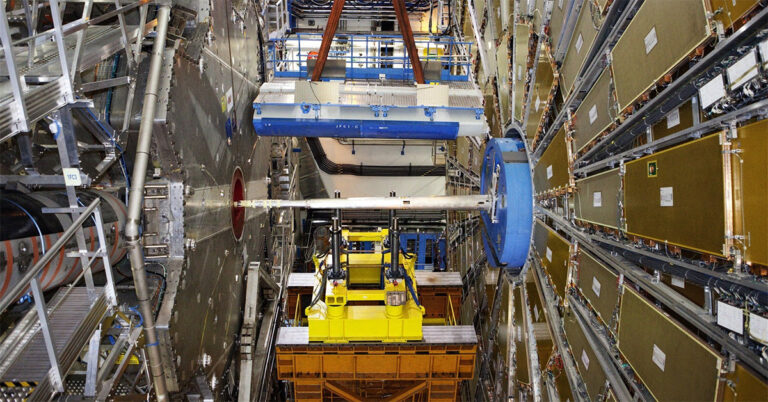Ruston, LA – Louisiana Tech University’s Physics Department in the College of Engineering and Science has been awarded a three-year, $395,362 grant from the National Science Foundation (NSF). The funding supports Louisiana Tech’s role in the ATLAS experiment at CERN’s Large Hadron Collider (LHC) and will expand research opportunities for graduate and undergraduate students in physics.
ATLAS, one of two general-purpose detectors at the LHC, investigates the fundamental components of matter and their interactions. The global collaboration has contributed to major discoveries, including the Higgs boson in 2012, and continues to explore key questions in physics such as dark matter, quark-gluon plasma, and the limits of the Standard Model.
The project is led by Dr. Lee Sawyer, academic director of physics and chemistry at Louisiana Tech and a longtime member of the ATLAS collaboration. The NSF grant will support faculty, students, and outreach activities, including the university’s annual International Particle Physics Masterclass, where high school students and teachers learn about the building blocks of the universe.
A central focus of the research, titled Searches and Measurements in Multi-Jet Production at the LHC and HL-LHC, is the development of advanced machine learning tools to improve ATLAS’s capabilities. Louisiana Tech researchers are collaborating with teams from Stanford, the University of Paris, the University of Pittsburgh, and the University of Geneva to design artificial intelligence systems that can identify rare, high-value particle collisions. The group is also contributing to ATLAS-wide AI initiatives, including a large language model to help scientists navigate the experiment’s vast technical and scientific records.
By the end of the three-year grant, the team plans to award new Ph.D. degrees, recruit additional graduate students, publish multiple research papers, and further refine AI-based analysis tools.
“This award underscores the fact that Louisiana Tech students have access to opportunities that rival those at the largest research universities,” said Dr. Collin Wick, dean of the College of Engineering and Science. “By working on a project of this scale, our students not only contribute to discoveries that shape our understanding of the universe but also gain cutting-edge skills in AI, data analysis, and collaboration.”
Sawyer noted the grant continues Louisiana Tech’s long-standing role in high-energy physics research.
“This funding means the continuation of high-energy physics research at Tech, which has been part of the highest-energy collider experiments since 1998,” Sawyer said. “We are one of very few mid-sized universities involved at this level, and this grant keeps us contributing to one of the most ambitious scientific projects in history.”
Beyond global research contributions, the project supports Louisiana Tech’s teaching mission by giving students hands-on experience at the forefront of science and technology.
“ATLAS is exploring the deepest laws of nature,” Sawyer said. “This grant ensures our students, faculty, and community can continue to be part of that exploration.”

